This blog originally appeared on News Deeply on December 18, 2017.
Almost immediately after the Trump administration withdrew from the Global Compact on Migration earlier this month, American mayors responded by requesting their seat at the table.
Leaders of 18 U.S. cities, from Pittsburgh to Milwaukee to San Jose, joined a petition signed by more than 130 mayors from around the world. They asked co-facilitators Mexico and Switzerland to give cities a formal role in negotiations over the Compact, which will begin in February.
The Migration Compact is part of a U.N.-led effort to craft a more coordinated and humane approach for dealing with record levels of migration and displacement. Trump administration officials, including Secretary of State Rex Tillerson, cited sovereignty concerns as justification for withdrawing.
This misses the point. The New York Declaration on Refugees and Migrants, which laid out the framework for two Global Compacts in 2018, is a non-binding political declaration. The same is true for the Migration Compact itself. More than anything else, it is statement of principles.
Setting visa policy and determining the number of migrants and refugees a country will admit is clearly the sovereign right of its national government. However, it is local governments that are often responsible for managing the consequences of those decisions. That’s why it’s essential that cities have a meaningful opportunity to engage in migration governance discussions.
“Cities are at the heart of migration,” the mayors note in the petition, which was convened by a network of cities called Metropolis. “They are places of origin, transit and arrival, and are the main destination for migrants.”
The same is true for refugees. Local authorities bear significant responsibility for addressing the needs of newcomers, both refugees and migrants, as well as the communities that host them.
In a separate letter the same week, mayors of 16 major global cities asked the U.N. High Commissioner for Refugees for a greater voice in the second process laid out in the New York Declaration, the consultations over a 2018 Global Compact on Refugees.
Noting that around 60 percent of the world’s refugees live in urban areas, the mayors argued that the Refugee Compact should be informed by the experiences and innovations of municipalities, in order to “enhance its effectiveness as well as its legitimacy.”
Among the cities petitioning for a voice in both the Refugee and Migration Compacts is Providence, Rhode Island.
Providence is an incredibly diverse city made up of many unique neighborhoods, each with their own identity and culture. Rhode Island has one of the highest proportions of foreign-born people of any state in the U.S. at 13.5 percent. Between 150 and 200 new refugees are resettled in the state each year.
The city is taking steps to ensure that all residents feel supported and welcomed. In the past year, Providence has created a Newcomer Center in its school district to provide educational, social and emotional support to newly arrived students, including immigrants and refugees.
This past year, Providence funded a new municipal ID program, similar to those in other inclusive cities, so that residents have access to identification regardless of their immigration status. The city is also pursuing inclusive urban planning and programming, which is crucial to meeting the needs of the entire community.
It’s important that Providence continues to be a leader on these issues, so that refugees both here at home and throughout the country feel this support.
Beyond principles, the goal of the Global Compacts is to move toward solutions. It is an opportunity to learn from past mistakes and successes. By including local as well as international and national leaders in Compact discussions, we have the chance to learn what is and isn’t working on the ground.
Giving mayors a seat at the table could help spread best practices far and wide. Many of the innovations taking place in our cities have not yet been well replicated or scaled. Yet cities are well positioned to build partnerships with the private sector, civil society organizations, including diaspora groups, and other municipalities, so that good ideas are implemented and shared.
U.S. ambassador to the U.N. Nikki Haley reportedly disagreed with the administration’s decision to withdraw, arguing that the U.S. would have a better chance at influencing the outcome of the negotiations if it participated in them. Given the current administration’s stance on migration and refugees, perhaps the silver lining is that now they won’t be able to do so.
With the abdication of U.S. leadership on the global stage, it’s now time for local American leaders to be heard.

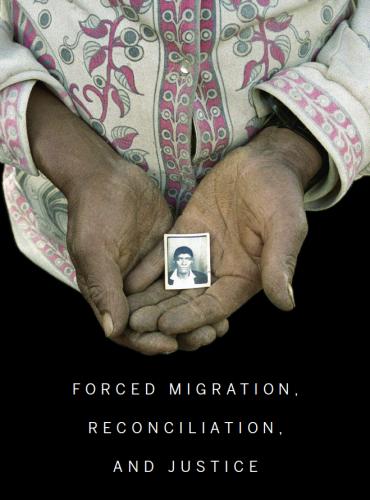
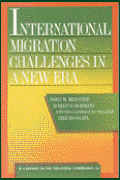
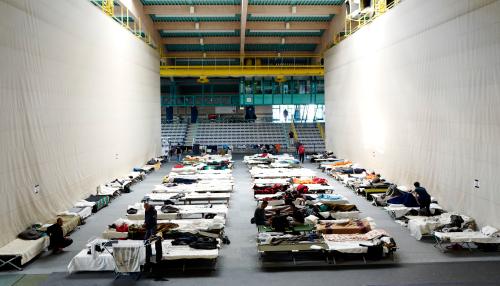

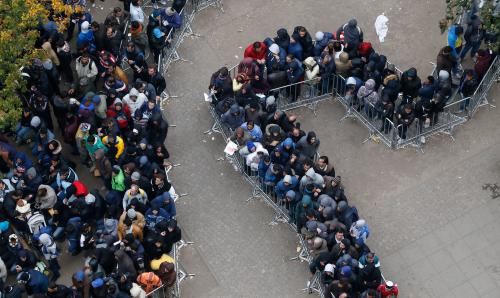

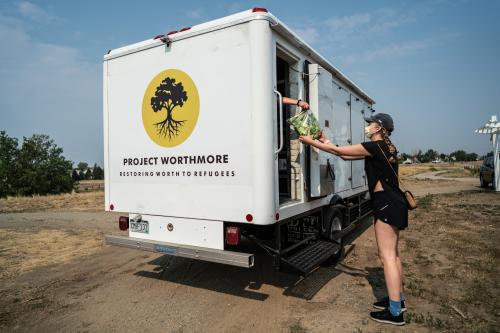
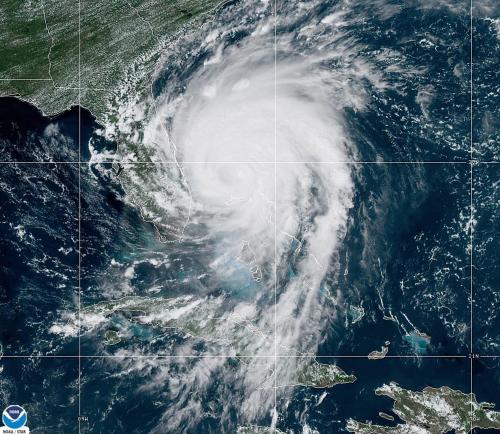
Commentary
Op-edWhy cities are the new face of American leadership on global migration
December 18, 2017